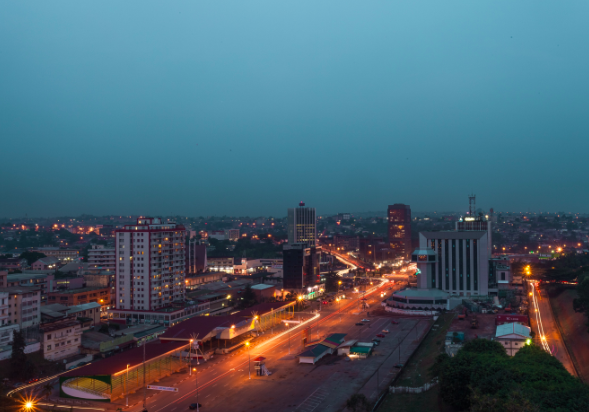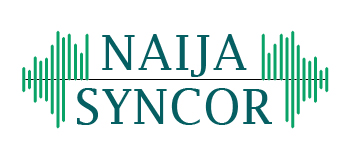TREEBADAN/IGI’BADAN: “Local Knowledges and Relations to Remarkable Trees in Ibadan (Oyo State, Nigeria)”
Discover the project
The research program TREEBADAN/IGI’BADAN “Local Knowledges and Relations to Remarkable Trees in Ibadan (Oyo State, Nigeria)”, aims at establishing an assessment of the natural heritage of the city of Ibadan (Oyo State, Nigeria), from a botanical, but also a historical and an anthropological perspectives.
The Treebadan project is now part of the ANR-funded 4 year research programme INFRAPATRI Knowledges and attachments to urban plants in Sub-Saharan Africa (Benin, Cameroon, Nigeria, Senegal): identification and production of a heritage from below. You can find more information about this ANR in french or in english.
This will involve drawing up an inventory of the trees within the city seen as “remarkable” according to their botanical characteristics (Modelled on the inventory realised by the cities of Paris or New York for instance), but also as supports of the urban memory and identities, markers of specific historical events (rituals, judgments, political or festive gatherings, battles, markets, etc.), places and objects of sociability and urbanity (places of meeting, worship or trade, elements of the local pharmacopeia, objects of ornamentation and attachment, etc.) and tools for urban governance. One of the objectives of the project is also to evaluate the effective tree biodiversity of Ibadan and how it is perceived and used by Ibadan citizens, through an ethnoscientific approach.
More broadly, TREEBADAN aims at deciphering what the relationships of Ibadan’s city-dwellers and authorities to urban trees and nature tell us about:
- the urbanistic history of the city
- the construction of an urban memory and the definition of urban social and cultural identities, modes of sociability and of “living-together” in the public spaces of the city
- the governance of the city, captured through its management of natural elements over the years
To that end, the research is conducted by a multidisciplinary team of researchers, in social sciences, humanities, urban studies and natural sciences, from France and Nigeria. The scientific team partners also with artists to capture local relations to urban trees through a more aesthetic and poetic apprehension, and to disseminate the results of the program to a wider audience. Finally, TREEBADAN results could lead to a practical programme aiming at recognising the urban remarkable trees as part of the natural, but also cultural heritages of Ibadan, and from that at protecting them, so to as to fight against deforestation and to preserve urban biodiversity, starting from local knowledge and relations to urban nature.

A kola tree in front of a photo studio at night, Irefin, Ibadan, S. Chevalme
Methodology
The program is directed by Dr Emilie Guitard, anthropologist and researcher at IFRA-Nigeria. Together with Adedeji Adebayo, PhD student from the University of Ibadan, they have started since 2017 to conduct ethnographic fieldwork by realising open interviews with citizens living close to the trees and/or interacting with them on a daily basis, along with the relevant municipal authorities, and by realising sessions of participant observation to understand the interactions between these different actors in social, economic, political or religious terms with and around the urban trees. Dr Guitard and A. Adebayo are also carrying ethnoscientific data collection to evaluate the local knowledge and uses regarding general and urban tree biodiversity.
As a second step, Dr Guitard will partner with Dr Saheed Aderinto, associate professor of History at Western Carolina University (USA), to redraw the history of the management of the urban natural elements, notably trees, by the successive authorities of Ibadan. A geographer or an urban-planner will also be associated to the program to study the spatial repartition of trees in the city, according to their species and uses, but also in line with the history of their public management. Within this frame, the trees identified as remarkable will be geo-located, to produce a digital map of urban trees in Ibadan, including not only botanical, but also anthropological and historical data. Finally, a botanist will be associated to TREEBADAN to assess the tree biodiversity of Ibadan and proceed to the botanical identification and dendrochronological dating of the urban trees said to be “remarkable” by the city-dwellers.
At last, to capture the local relations to urban nature through an aesthetic and poetic apprehension, and notably to describe the urban atmosphere under the urban trees and its variation depending on the neighbourhood, the time of the day or the type of activities going on there, the scientific team is collaborating with French and Nigerian visual artists, photographers and documentary film maker. In October 2017, the French graphic designers and visual artists Elodie and Delphine Chevalme (better known as Les Soeurs Chevalme) spent two weeks doing fieldwork with Dr Guitard and A. Adebayo to realise drawings and pictures around “remarkable” trees in the historical centre of Ibadan. These artistic productions will be presented to the general audience of Ibadan, Nigeria and abroad through various mediums, including a multimedia exhibition and a coffee table book, together with brief texts by the members of the scientific team. As a second step, the scientific team will also partner with the French and Congolese documentary film maker Alain Kassanda, to realise a poetic documentary on the relations of the inhabitants of Ibadan to urban trees.

A garage under an Almond tree, Ita Baale, Ibadan, E. Chevalme
Finally, the results of TREEBADAN could be used to nurture applied programs to fight locally against deforestation by preserving the urban biodiversity. The trees listed as remarkable will be presented to Ibadan and Oyo State authorities to be patrimonalized and protected, as part of the city heritage. The data produced within the frame of the program could also be mobilised to realize a botanical walk throughout the city, presenting by means of panels the main information concerning the most remarkable trees in the different registers studied (botany, history, anthropology). Commented tours of this walk could also be organised in collaboration with the researchers and the inhabitants interviewed for the city schools, together with the screening of the documentary and possibly the presentation of the multimedia exhibition. TREEBADAN/IGI’BADAN will in this context serve as a tool to raise awareness on the wealth of Ibadan’s trees as part of its natural and cultural heritages, and on the necessity to preserve them, starting from the local knowledge and relations to them.

A Fig tree in front of the Ogunmola compound, Bere, Ibadan, D. Chevalme
Team Members
Academic team
- Dr. Emilie Guitard, Scientific coordinator of the project (IFRA Nigeria, France/Nigeria)
- Dr. Saheed Aderinto, Historian (Western Carolina University, USA)
- Adedeji Adebayo, Research assistant (PhD student, University of Ibadan, Nigeria)
Artistic team
- Elodie and Delphine Chevalme aka « Les soeur Chevalmes » (visual artists and graphic designers, France)
- Alain Kassanda (documentary film maker, France/DRCongo)
Associated events

Presentation (in French) of the program and its first results by Dr Guitard during a round-table on “Nature, art, ville”, organised by Dr A. Choplin (Global Studies Institute, Geneva) for the Institute for Research for Development (IRD) at the Institut Français du Bénin, Cotonou, December 2017

Presentation (in French) of the program and its first results by Dr Guitard during a round-table on “Patrimoine dans les villes d’Afrique: les cas de Yaoundé et d’Ibadan”, organised by Dr M. Morelle (University Paris 1/CNRS) and the Fondation Paul Ango-Ela at the Institut Français du Cameroun, Yaoundé, June 2018

Presentation (in French) of the program and its firt results by Dr Guitard within the Labex DynamiTe workshop on “Perceptions des changements par la biodiversité ordinaire. Savoirs locaux sur la biodiversité et les changements globaux en milieux urbains et périurbains”, organised by Dr A. Sourdril (Ladyss, Nanterre) and Prof. C. Raimond (Prodig, Paris), University Paris Diderot, March 2019


 NaijaSynCor Research Project
NaijaSynCor Research Project






Social Media
Mailing List